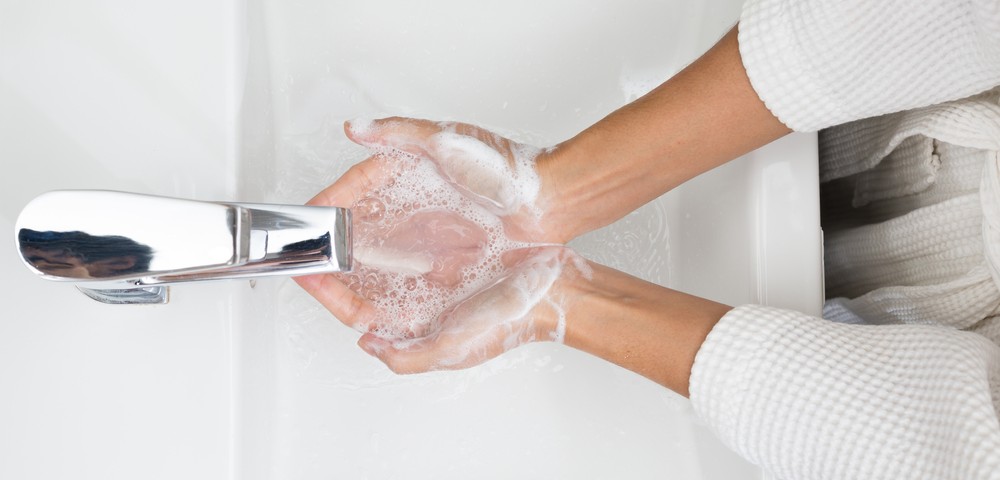Adopting Good Habits to Preserve Health Following Transplant
Written by |

Organ transplants are a trade-off. The patient receives a healthy organ or organs, but the price is chronic immunosuppression. The trade-off is made when there are no other treatment options, and only if the transplant is expected to be successful.
I can’t tell you how many times I heard doctors say something like, “We would not be doing a service to anyone by transplanting lungs into someone whose body cannot sustain life.” Imagine hearing those words when your mom is sick enough to be trached in the ICU but is not even on the transplant list. Gulp.
As painful as it was to wrestle with that statement, I knew that it was true. Watching my mom recover from her transplant was proof of that. She is incredibly resilient and strong, but she still had a hard time getting back on her feet. She can walk 2 miles now, but a month ago she could barely ascend one flight of stairs. The baseline of health required to be on the transplant list is necessary to ensure a successful recovery, and in reality it’s extremely low.
Having an organ transplant is not like getting your tonsils out — and if you’ve had your tonsils out, you’ll know I mean business when I say that. It’s a major, science fiction-esque surgery. The body goes through extreme trauma on the operating table, and long afterward by way of the immunosuppressive medications required to prevent rejection. Over time, the doses are reduced, but unless there are major medical advancements, this medication will always be necessary as the patient will be at risk for organ rejection for the rest of their life. They have to survive or the gift goes to waste.
Living with chronic immunosuppression means that many things become dangerous — things that people with healthy immune systems typically don’t have to consider. Bacterial infections, viruses like the cold and flu, fungi and molds, and parasites are everywhere. Therefore, transplant recipients must comply with a long list of rules and safety practices. The doctors who give this gift to people don’t want them to die from scooping a litter box, just as the patient should also want to avoid that fate.
Some examples of the precautionary habits that a transplant patient needs to follow are:
- Food safety: Use separate cutting boards to avoid cross-contamination between raw meat and cooked foods. Cook meats to safe temperatures. Never eat sushi, unpasteurized dairy, or anything from the deli section of the market. Don’t eat at buffets or be the last person in line at a potluck. Wash all produce thoroughly, even if it has a peel or rind.
- Don’t scoop cat litter. Ever.
- Don’t mow the lawn or do yard work — not even gardening.
- Avoid smoke, dust, mold, and other airborne irritants.
- Avoid sick people and always wear a mask to the hospital, when in crowds, and on public transportation.
- Wash hands frequently.
- Take medications on time.
- Record vital signs every day — at least in the initial months — to monitor for signs of infection.
Those are the main ones, but I could go on. I’ve read the book so many times — yes, the University of California, San Francisco, provides patients and caregivers with a binder full of information — that I could reproduce it from memory. As a caregiver, it was my job to know it cover-to-cover so that I could keep my mom safe. My dad and aunt also studied the “Blue Binder.”
Now that my mom is back home and out of the haze of the first few months post-transplant, she has read and reread the binder herself. She is regaining her independence with just my dad’s help, which it seems she needs less of every day.
From last Christmas until several weeks ago, my mom was either in the hospital or within a 20-minute drive. Before her transplant, her lung function was so poor that bringing cold germs or other airborne baddies into her room could have killed her. Now, and always, those things will put her health at risk.
I, however, have a healthy immune system. But when I got home to Washington, one of the first things I did was put a dehumidifier and electric air purifier in our too-damp closet. I don’t need to breathe mold. I hold my breath when I scoop the cat litter. I wear a mask to mow the lawn. I use my meat thermometer religiously. I wash my avocados. At the store, I don’t pick produce if there’s something moldy in the box. There’s a hand sanitizer in every bag that I own.
I have no reason to continue doing most of these things — though it can’t hurt. But here I am: Changed forever by my mom’s lung transplant, reading the great Blue Binder in my mind.
***
Note: Pulmonary Fibrosis News is strictly a news and information website about the disease. It does not provide medical advice, diagnosis, or treatment. This content is not intended to be a substitute for professional medical advice, diagnosis, or treatment. Always seek the advice of your physician or other qualified health provider with any questions you may have regarding a medical condition. Never disregard professional medical advice or delay in seeking it because of something you have read on this website. The opinions expressed in this column are not those of Pulmonary Fibrosis News or its parent company, Bionews Services, and are intended to spark discussion about issues pertaining to pulmonary fibrosis.




Leave a comment
Fill in the required fields to post. Your email address will not be published.